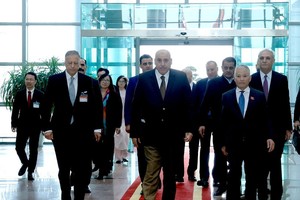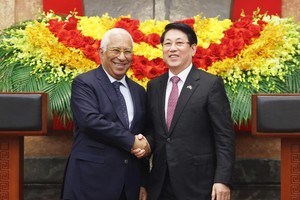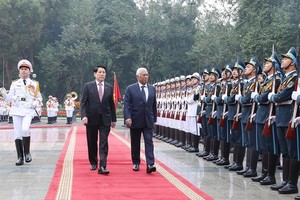Officials at the government of Gyeonggi Province that surrounds Seoul said Saturday that a college professor belonging to the province's Committee on Infectious Diseases argued against the construction of a large-scale housing complex and crowd facilities within 10 km of the inter-Korean border, citing the dangers of malaria originating from North Korea.
"An analysis of local malaria patients found that over 90 percent of the infections occurred within 10 km of the Demilitarized Zone (DMZ). Accordingly, large-scale housing and other crowd facilities should not be built in the border areas," the professor was quoted as saying. The DMZ bisects the Korean Peninsula and forms the de-facto border between the Koreas.
According to data, 235 malaria patients have been reported in Gyeonggi Province so far this year, which account for 58.6 percent of the nation's total of 401. In the same period of last year, the province witnessed 307 malaria patients.
In Gyeonggi Province, Goyang reported 54 malaria patients, followed by Gimpo with 51 and Paju with 42. At present, large-scale housing complexes or multiuse facilities are being built in Paju and Gimpo, which are both located within 10 km of the border.
The province has asked municipalities of the border areas to more thoroughly conduct quarantine activities against mosquitos, source from the Yonhap.
























